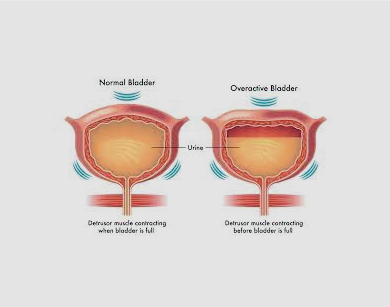September 8, 2024
Urinary Troubles In Seniority Kinds, Risks, And Therapy Options Max Healthcare Facility
Tips For Taking Care Of Urinary Incontinence In Elders Urinary incontinence can be triggered by lasting (persistent) clinical conditions. When you experience leak issues as a result of a persistent condition, it's typically something you will need to take care of over a longer amount of time. Despite treatment, chronic conditions generally don't disappear.
What is the clinical treatment to stop pee leakage?
If you need aid establishing a healthy and balanced, sustainable fat burning plan, think about making a visit with a doctor like a registered dietitian. You're additionally more likely to experience urinary incontinence as you get older. The muscles that support your pelvic body organs can become weak gradually, triggering you to experience leak concerns. When this system is working smoothly, you usually have time to reach a bathroom before requiring to pee and you do not experience any leakage of pee. Urinary incontinence can occur when these components do not run as they should. This can happen for several factors throughout your life. Some conditions, like diabetes and several sclerosis, can influence the nerves around the anus. This sends fast pulses of electrical energy to muscle mass around your bladder, which may aid enhance them. Excess extra pounds can tax your bladder, causing it to leak. The stress from carrying a baby and delivering can damage muscle mass, tendons, and nerves in your hips, leading to incontinence. This infection can aggravate your bladder, leaving you with a strong urge to pee and, sometimes, incontinence. In sling surgery for females, a doctor works through the vaginal canal to put a strip of product between the vaginal area and urethra. The surgeon might choose to utilize a synthetic mesh, a screen-like material that supports compromised or damaged tissue, or the cosmetic surgeon might select a biologic graft made from human or animal cells. If way of life adjustments aren't benefiting you, your healthcare expert may prescribe medicine, a medical gadget, a bulking representative, or-- as a last option-- surgery to assist treat UI. Your possibilities of establishing UI and various other illness, such as diabetic issues, are greater if you're overweight or have weight problems. Dropping weight can aid you have less leakages, and staying clear of weight gain might stop UI. These changes can consist of maintaining a healthy weight, quitting smoking cigarettes, avoiding alcohol and high levels of caffeine, handling liquid consumption, and normal exercise to strengthen pelvic muscular tissues.
Aid Is Readily Available For Carers Of Individuals With Urinary Incontinence
If you need special tests, you might be sent out to a specialist in urinary system problems, called a urologist, or a specialist in females's urinary problems, called a urogynecologist. There also are genital inserts that resemble tampons that can sustain your urethra. These devices are great options for people that don't desire surgical treatment.
Urinary Incontinence Treatment For The Senior
It can be bothersome and awkward, but there are methods to treat and manage it. An electric patch is positioned on your skin over your bladder and urethra. The patch is linked to a display so you can see when
Women’s Health Physiotherapy the muscular tissues contract. Behavioral therapies, such as bladder training and arranged bathroom journeys, can also help take care of incontinence. Along with food and drink causes, your loved one might experience urinary incontinence throughout or after particular activities or activities.
- In addition, caring for a liked one with incontinence can be difficult and overwhelming.
- Considering that particular foods and drinks can cause urinary incontinence, focus on your loved one's diet regimen, and stay clear of possible triggers as detailed above.
- The central control offers a repressive input on the detrusor to lower tightenings throughout the bladder filling up stage.
It includes an abrupt and intense desire to urinate, commonly followed by an involuntary loss of urine even if the bladder isn't full. This type is related to an overactive detrusor muscular tissue in the bladder. To "train" your bladder so you can urinate less frequently, specialists advise keeping a bladder diary to keep track of your urination timetable. This problem greatly affects the every day lives of older grownups, affecting physical comfort and psychological well-being. However, there are different techniques and techniques available to manage and improve this condition. Reinforcing the pelvic muscular tissues might help you keep in your pee longer and lower the number of leakages you experience. A physiotherapist trained in pelvic floor treatment can aid you develop a safe and suitable PFMT regimen. Remember that you should not carry out pelvic flooring workouts while peing. Urinary system incontinence can be part of having an over active bladder (OAB), but the two problems are not the same.
